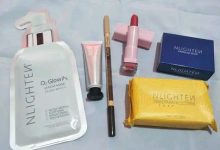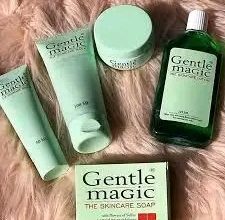The Benefits of Using a Facial Serum
Facial serums have steadily gained popularity in the beauty industry due to their undeniably remarkable and noticeable effects on the skin.
Made with a potent blend of active ingredients, facial serums penetrate deep into the skin, helping to nourish, hydrate, and improve the skin’s overall texture and appearance.
While some may argue that facial serums are unnecessary, they offer a host of benefits that make them a must-have in any skincare routine.
In this article, we’ll explore the benefits of using a facial serum and why it is an essential part of any skincare routine.
What is a Facial Serum?
First and foremost, let’s define what a facial serum is. A facial serum is a lightweight, quick-absorbing skincare product that contains a high concentration of active ingredients.
These active ingredients are designed to penetrate deep into the skin’s layers and target specific skin concerns, such as dryness, fine lines, hyperpigmentation, and more.
Unlike moisturizers, which are designed to sit on top of the skin and provide hydration, facial serums are formulated to infuse the skin with potent active ingredients that can help to boost cellular turnover, protect against environmental stressors, and support overall skin health.
Facial serums are typically applied after cleansing and toning and before moisturizing as they help to enhance the effectiveness of other skincare products.
Benefits of Using a Facial Serum
1. Deeply Nourishes and Hydrates the Skin
Facial serums are packed with hydrating ingredients that penetrate deep into the skin to provide long-lasting hydration.
Ingredients such as hyaluronic acid are a favorite in many serums and can hold up to 1,000 times its weight in water, making it incredibly effective at hydrating dry and dehydrated skin.
With regular use, a facial serum can help to restore the skin’s moisture barrier, leaving the skin plump, soft, and radiant.
2. Boosts Collagen Production
Collagen is a protein found in the skin that gives it its strength and elasticity.
As we age, collagen production starts to slow down, leading to fine lines, wrinkles, and sagging skin.
The active ingredients in facial serums can help to stimulate collagen production, leading to firmer, more youthful-looking skin.
Peptides, vitamin C, and retinol are all potent ingredients that can help to boost collagen production and reduce the signs of aging.
3. Improves Skin Texture and Tone
Facial serums are designed to target specific skin concerns, such as hyperpigmentation, acne, and dull skin.
With regular use, a facial serum can help to improve the skin’s overall texture and tone, leaving it looking smoother, softer, and brighter.
With active ingredients such as alpha-hydroxy acids (AHAs) and beta-hydroxy acids (BHAs), facial serums can help to exfoliate the skin, remove dead skin cells, and unclog pores.
4. Provides Protection Against Environmental Stressors
The skin is constantly exposed to environmental stressors, such as pollution, UV rays, and blue light from screens.
These stressors can lead to accelerated aging, hyperpigmentation, and skin damage.
Facial serums contain antioxidants such as vitamin C and E, which help to protect the skin from environmental stressors and free radicals.
By protecting the skin from damage, facial serums can help to keep it looking healthy and radiant.
5. Enhances the Effectiveness of Other Skincare Products
As previously mentioned, facial serums are designed to be applied before moisturizers and can help to enhance the effectiveness of other skincare products.
By penetrating deep into the skin’s layers, facial serums can help to boost the absorption of other active ingredients, such as moisturizers and sunscreens.
This means that using a facial serum can help to increase the effectiveness of other skincare products, leading to better results overall.








